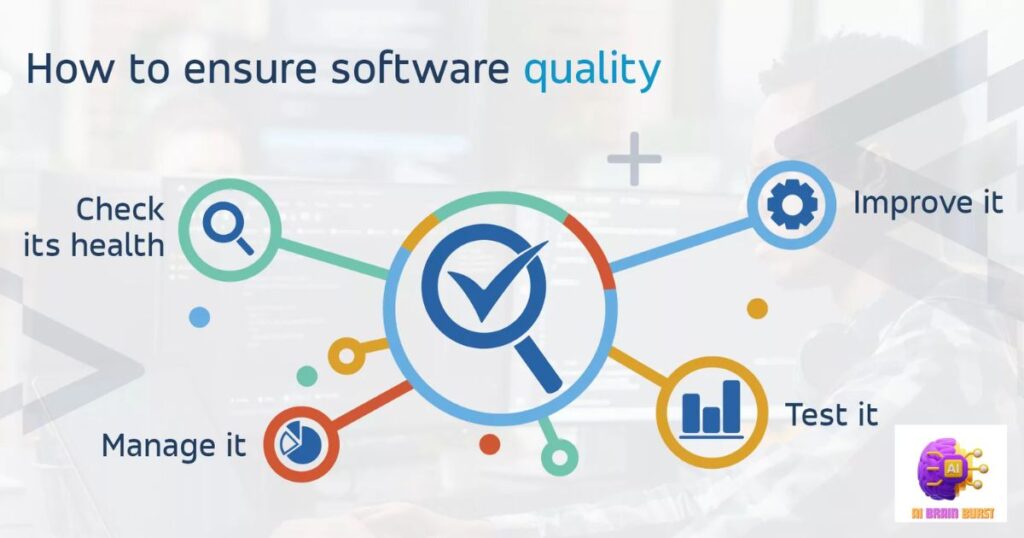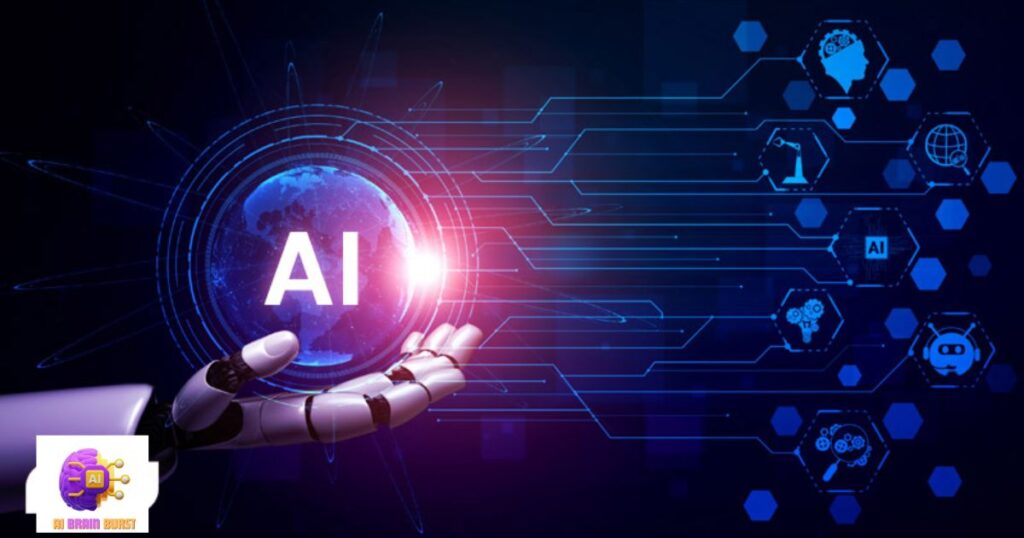DevOps teams can advantage significantly from imposing artificial intelligence. AI can automate repetitive duties, examine information, and optimize strategies. This allows developers to awareness on creative paintings in preference to monotonous obligations. AI additionally improves efficiency, reduces fees, and enhances satisfactory.
How can a DevOps team take advantage of artificial intelligence? With the right AI gear, there are countless approaches for DevOps groups to leverage the power of synthetic intelligence. AI can remodel many components of the software program development lifecycle.
Applying AI enables DevOps teams to streamline their workflows. AI can automate trying out, speed up deployments, support safety, and improve collaboration between teams. It also gives beneficial insights thru large records analytics. AI is turning into an invaluable asset for ahead-questioning DevOps groups.
Key Takeaways
- Automate repetitive and mundane tasks like testing, bug detection, and code reviews to free up developer time.
- Use AI to optimize workflows, group of workers assignments, and infrastructure scaling to enhance performance.
- Leverage AI facts analytics to uncover developments and styles that provide records driven insights.
- Enhance software quality through AI-enabled code reviews, automated security checks, robust testing, and more.
- Optimize cloud costs by using AI to accurately forecast capacity needs and rightsize infrastructure.
- Improve collaboration between teams with AI chatbots, transcription, and tools to identify issues.
- Start small with controlled pilots to evaluate AI tools before broader implementation.
- Monitor AI system performance closely to watch for unintended consequences or biases.
- Address adoption challenges like skills shortages, integration complexity, and lack of explainability.
- Take an incremental approach to adopting AI and build up internal skills and experience over time.
Automating Repetitive Tasks
One of the biggest benefits of AI for DevOps is automating repetitive, mundane obligations that soak up builders’ time. This lets in developers to recognition their efforts on greater high-fee, strategic paintings.
AI can automate various tasks throughout the software development lifecycle. For example, AI techniques like machine learning can automate the detection and resolution of bugs. Neural networks can be trained to identify code patterns that often lead to bugs.
Another common application is leveraging the power of AI, such as Janitor Ai, for test automation. AI can generate its own test data and scenarios to thoroughly test software with less human effort. It can also self-correct tests that begin failing to stay up to date with code changes.
Enhancing Efficiency and Speed
In addition to automating tasks, AI improves overall efficiency and speed for DevOps teams in several ways. AI can optimize release cycles and staff workflows. It can analyze past release data to recommend ideal timing for new releases based on staff capacity. AI assistants can also recommend optimal workflows and assignments to improve team productivity.
For deployment, AI can enable auto-scaling of infrastructure to match demand. This ensures applications stay performant while minimizing wasted resources. AI can also detect anomalies and roll back faulty deployments to keep systems stable.
Generating Insights from Data
Another key advantage of AI is its ability to automatically generate valuable insights from large volumes of data. AI techniques like machine learning can uncover patterns and trends in code repositories, issue tickets, user behavior data, logs, and more. This helps DevOps teams pinpoint bottlenecks, predict outcomes, and make data-driven decisions.
For example, natural language processing could scan user support tickets to identify common complaints or detect signs of bugs spreading. Sentiment analysis of code reviews can alert managers to potential team collaboration issues.
Improving Software Quality

AI can also enhance software quality in DevOps environments. It does this thru automatic code critiques, computer virus detection, protection scanning, and extra. Machine getting to know algorithms can be educated to study code for vulnerabilities, compliance with requirements, and adherence to high-quality practices. This frees up developers’ time while reducing risks.
For testing, AI can generate more robust test data to cover a wide range of use cases. It can also perform sophisticated mutation testing by introducing faults and checking for detection. This improves real-world robustness.
Optimizing Cloud Usage
For teams using cloud infrastructure, AI can help optimize cloud usage to reduce costs. It can accurately forecast future capacity needs based on data like traffic patterns, upcoming releases, and business plans. AI can then automate scaling cloud resources up or down to match demand.
It can also proactively identify idle cloud resources that are overprovisioned. Rightsizing infrastructure reduces waste and saves money. Machine learning techniques can optimize complex decisions like determining ideal locations for resources.
Improving Collaboration Between Teams
DevOps closely is predicated on collaboration among exceptional teams like builders, ops engineers, protection professionals, and product managers. AI can improve collaboration through advanced communication tools. AI chatbots act as helpful team assistants that answer questions, provide documentation, and retrieve needed information.
Team members can even query them using natural language. For remote teams, AI transcription and translation tools can improve meetings and communication. AI can also analyze interactions to help managers identify collaboration issues before they escalate.
Challenges in Adopting AI
While AI provides many benefits, adopting it poses some challenges DevOps teams should consider:
- AI skills shortage: The team will need data science and ML engineering skills that are hard to obtain
- Integration complexity: Integrating AI tools into existing systems can be difficult and time-consuming
- Explainability issues: Understanding how complex AI models work can be a black box, creating trust issues
- Resource requirements: Training AI models requires massive datasets and compute resources
DevOps teams should carefully evaluate if they have the skills, resources, and data needed to effectively adopt AI. Taking an incremental approach and starting with pilot projects can help navigate some of these challenges.
Getting Started With AI Adoption

Here are some best practices for DevOps teams to start taking advantage of artificial intelligence:
- Assess needs and identify opportunities: Look for tedious or complex tasks that AI could improve
- Start small with pilots: Run controlled pilots to evaluate AI tools on low-risk activities
- Choose pre-trained models: Leverage pre-trained ML models before investing in custom training
- Monitor closely: Carefully track performance metrics and watch for unintended consequences
- Address risks: Take steps to guard against risks like bias, security issues, and lack of transparency
- Evaluate many vendors: Vet multiple vendors to find the best long-term AI partners
- Invest in skills: Slowly build up internal AI/ML skills and understanding
FAQ’s
What tasks can AI automate for DevOps?
AI can automate repetitive responsibilities like testing, malicious program fixing, infrastructure provisioning, and monitoring.
How does AI improve efficiency for DevOps?
AI optimizes workflows, resource allocation, and launch timing to beautify productivity.
What insights can AI offer to DevOps groups?
AI exhibits tendencies and patterns in information to manual higher selection making.
How can AI increase software program exceptional for DevOps?
AI performs code opinions, safety checks, sturdy testing, and detects bugs.
What are some challenges of adopting AI in DevOps?
Challenges consist of abilties shortages, technical complexity, opaque AI fashions, and enormous facts/compute necessities.
Conclusion
Artificial intelligence gives extremely good opportunities for DevOps groups to transform their workflows. By automating repetitive tasks, enhancing performance, producing insights, and improving high-quality, AI can offer fundamental blessings. However, there are challenges around abilities, complexity, and explainability that should be navigated.
Overall, taking a gradual method to adopting AI with managed pilots and incremental skill building will permit DevOps groups to faucet into the strength of artificial intelligence. With right evaluation and planning, AI can help DevOps teams paintings smarter, faster, and more effectively. The future appears shiny for this growing collaboration among synthetic intelligence and DevOps.








